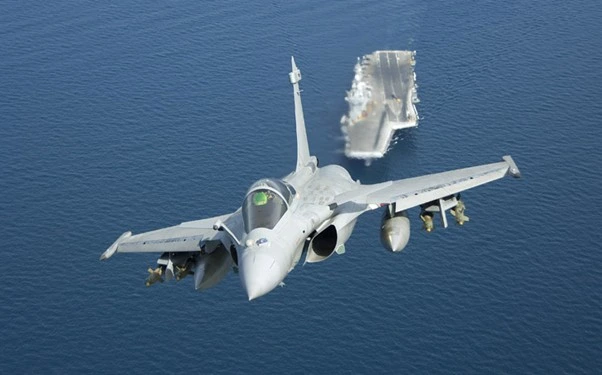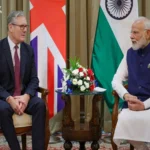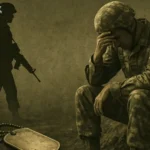French anti-corruption detectives questioned Julie Gayet, the partner of former French President François Hollande, in October 2024 in relation to the long-simmering doubts about the €7.8 billion Rafale fighter jet sale between France and India. The central focus of the investigation is a set of possible conflicts of interest and dubious financial transactions that have generated major ethical and legal questions on both sides of the agreement.
The discovery that the Reliance Group, an Indian conglomerate headed by Anil Ambani, funded a film co-produced by Julie Gayet when the Rafale contract was under negotiation marks one of the most divisive points of inquiry. This backing coincided with the crucial negotiating phase for the fighter jet purchase, which resulted in general claims of improper behaviour. Reliance’s exact financial participation to the movie is yet unknown, although its timing has attracted considerable investigation. Critics contend that the money could be seen as an indirect means of influence, so compromising the integrity of the contract.
Serving France from 2012 to 2017 and supervising the signing of the Rafale agreement in 2016, François Hollande has firmly denied any misbehaviour. Hollande claims that the French government had no say on which Indian partners Dassault Aviation, the French defence company behind the Rafale aircraft, chose. In previous remarks, Hollande said that France had no influence over the choice of offset partner for Dassault, the Indian government had suggested Reliance. Still, the junction of Gayet’s commercial interests with Hollande’s official contacts has led to accusations of secret quid pro quo agreements and backdoor diplomacy.
The legal counsel of Julie Gayet has written off the claims as unfounded. According to her attorney, Gayet was not aware of any connection between the film investment and the Rafale discussions, hence the circumstances were a “pure coincidence“. Moreover, Gayet allegedly sent all required records to authorities to demonstrate her film financing’s validity and to indicate there was no intention of hiding any transaction. Notwithstanding these guarantees, the issue nevertheless fuels rumours, particularly considering the well-known people engaged.
When one considers the context of a significant 2015 ruling by the French government to revoke a significant tax claim against the Reliance Group, the matter gets even more complex. Under Hollande’s presidency, the hundreds of millions of euro tax dispute were discreetly dismissed; once more, this coincided with the chronology of the Rafale discussions. Although authorities have denied any link between the two incidents, the series has heightened public mistrust that the agreement might have been facilitated by backchannel contacts and favours.
Growing pressure from civil society and investigative reporters led the French court formally to launch an inquiry into the Rafale contract in 2021. This phase represented a dramatic change from past initiatives to stifle investigation of the deal. Seeking internal documentation and correspondence pertaining to the contract, investigators raided Dassault Aviation’s Paris headquarters in 2022. That action demonstrated that, despite the high-level political consequences, French prosecutors were giving the corruption allegations top priority.
From an Indian standpoint, the Rafale agreement has been among the most divisive defence purchases the nation has ever undertaken. Although Prime Minister Narendra Modi’s government has justified the pact as required to strengthen national security, detractors contend that the selection process was skewed to benefit business groups, particularly Reliance, which had no past expertise in defence manufacture. Allegations range from inflated prices to lack of openness to neglect of accepted procurement standards.
These disclosures have made foreign observers wonder about the morality of India’s defence purchase policies. With arms sales sometimes acting as a conduit for political favours and corporate gain, the scandal exposes how personal and corporate interests could overwhelm national security goals. The Rafale scandal is not a one-off occurrence but rather a part of a larger trend of dubious and opaque defence transactions still afflicting India’s strategic autonomy.
The consequences of the incident go beyond bilateral ties between India and France. The view of extensive corruption and lack of openness in India’s military industry could discourage international arms producers from joining the market or consenting to technological-sharing agreements. As one reaction line advises, global armament dealers should consider twice before forming alliances with a nation engulfed in controversies. After all, trust is as important in defence contracts as the hardware itself.
Furthermore, the consequences of India’s dubious military purchases have great resonance throughout the area. The Rafale agreement, either tainted or not, marks a major improvement in India’s air capacity for surrounding Pakistan. Islamabad has thus felt obliged to change its own military posture, which has resulted in an arms race dynamic capable of upsetting an already precarious security climate. One critical remark said that India’s dubious arrangements compel Pakistan to increase military readiness, a concerning result for a country unable to afford higher tensions.
Back in France, the continuous inquiry keeps a long shadow over the memory of Hollande’s administration and the names of people close to him. Once mostly regarded through the prism of fame and society, Julie Gayet suddenly finds herself caught in a geopolitical debate with possibly global repercussions. She maintains her innocence and cooperation, but public opinion could be less forgiving, particularly should new disclosures surface.
The Rafale debate highlights a disturbing reality: the borders separating public obligation from private benefit are sometimes hazy in the high-stakes realm of foreign armaments sales. Although the court process may still reveal the whole truth about the France- India Rafale contract, the controversy has already produced one result: it has highlighted the institutional flaws, ethical lapses, and vulnerabilities afflicting significant defence purchases in both countries.
The Rafale agreement, which was supposed to be a symbol of strategic cooperation and technological innovation, now provides a case study on how not to engage international defence industry. Such crises will keep eroding public confidence and jeopardizing national security unless governments give transparency and responsibility top priority over political convenience and corporate influence.








